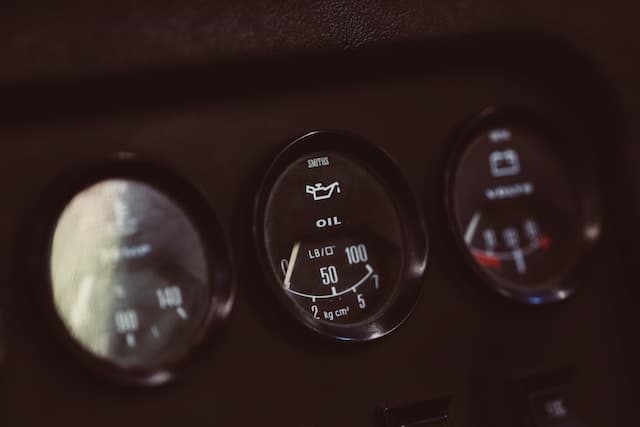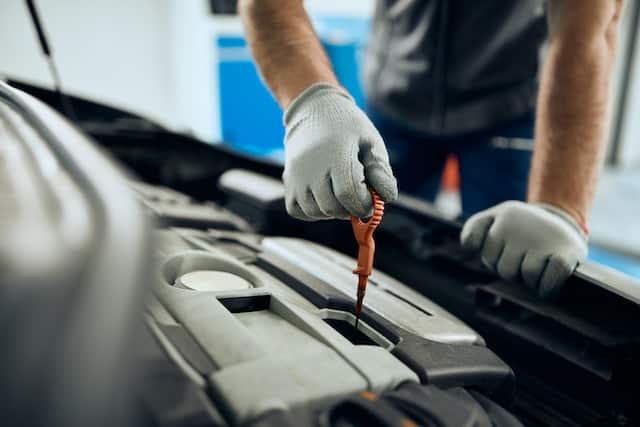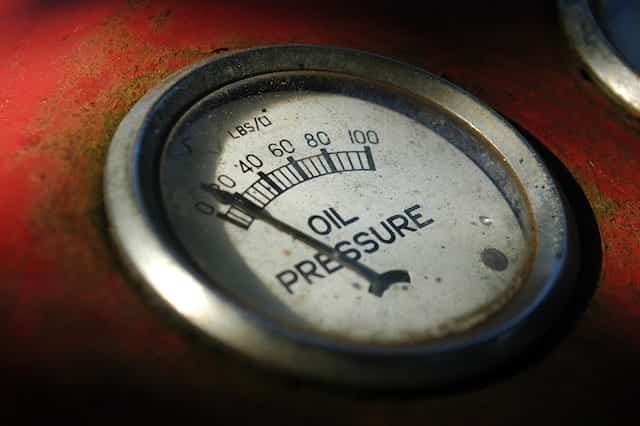
Have you ever wondered why your car seems to be consuming more oil than usual? Burning oil is a common issue that many vehicle owners encounter, and it is crucial to maintain proper oil levels to keep your engine running smoothly. In this article, we will look into the common causes of burning oil and explore solutions to help you keep your car in top shape.
It is important to address the issue of burning oil in a car as soon as possible to avoid further damage to the engine and potential safety hazards.
Common Reasons For Burning Oil

Worn-out Piston Rings
Piston rings play a vital role in sealing the combustion chamber and maintaining proper oil circulation. Over time, these rings can wear out, causing oil to leak into the combustion chamber and burn. Signs of worn-out piston rings include excessive oil consumption, blue smoke from the exhaust, and decreased engine performance.
Damaged Or Worn Valve Seals
Valve seals prevent oil from entering the combustion chamber when the engine is not running. If these seals become damaged or worn, oil can seep through, leading to burning. Symptoms of damaged valve seals include blue smoke upon startup and oil leaks around the valve covers.
Leaking Gaskets Or Seals
Gaskets and seals help maintain the integrity of the engine by preventing oil leaks. However, they can become damaged over time, causing oil to leak and burn. Identifying leaking gaskets or seals can be done by inspecting the engine for oil stains or puddles beneath the vehicle.
Excessive oil consumption due to high mileage
As a car accumulates miles, internal engine components may wear out, causing increased oil consumption. To determine if high mileage is causing your car to burn oil, monitor your oil levels and consumption regularly.
Incorrect oil grade or type
Using the wrong oil grade can lead to increased oil consumption and burning. Always consult your owner’s manual for the recommended oil grade and type for your specific vehicle.
Diagnosing The Issue

Monitoring your oil levels and consumption is crucial in identifying the cause of burning oil. If you notice unusual oil consumption, inspect your engine for leaks or damage. In some cases, seeking professional help for an accurate diagnosis may be necessary.
Here are some tips to help you monitor your oil levels accurately:
Park on a level surface
To get an accurate reading of your oil level, make sure your vehicle is parked on a level surface. This will help prevent any false readings due to uneven ground.
Wait for the engine to cool down
It’s best to check your oil level when the engine is cool or has been turned off for at least 10-15 minutes. This allows the oil to settle back down into the oil pan, providing a more accurate reading.
Locate the dipstick
Consult your owner’s manual to find the location of the oil dipstick in your vehicle. The dipstick is usually marked with a brightly colored handle, making it easy to locate.
Remove and clean the dipstick
Pull the dipstick out of the engine and clean it with a lint-free cloth or paper towel. This will ensure that you get an accurate reading when you reinsert the dipstick.
Reinsert and remove the dipstick
Insert the clean dipstick back into the engine, making sure it is fully seated. Then, pull it out again and check the oil level by looking at the markings on the dipstick. There are typically two marks or notches that indicate the minimum and maximum oil levels.
Assess the oil level
If the oil level is between the minimum and maximum marks, your oil level is sufficient. When the oil level is below the minimum mark, you should add more oil to bring the level up to the correct range. On the contrary, if the oil level is above the maximum mark, you may need to drain some oil to avoid overfilling.
Check the oil condition
While checking the oil level, also examine the oil’s condition. If it appears very dark, thick, or has a strong burnt odor, it might be time for an oil change. Additionally, look for any debris or metal particles, as these could indicate engine damage.
Record your findings
Keep a log of your oil level checks, noting the date, mileage, and oil condition. This can help you establish a pattern of oil consumption and determine when it’s time for an oil change or if there are any potential issues that need to be addressed.
Why Is My Car Burning Oil? Solutions and Preventative Measures

Regular Maintenance And Oil Changes
Scheduled maintenance and timely oil changes can help prevent burning oil. Be sure to choose the right oil change intervals based on your vehicle’s specifications and driving conditions.
Repair or replacement of damaged components
If damaged components are causing your car to burn oil, consider consulting a reputable mechanic to repair or replace them. While this may be a costly solution, it can help prevent long-term damage to your vehicle.
Addressing high mileage concerns
Using high mileage oil specifically designed for older engines can help reduce oil consumption. In some cases, an engine rebuild or replacement may be necessary.
Ensuring correct oil grade and type usage
Always consult your owner’s manual for the proper oil grade and type for your vehicle. Avoid using low-quality or off-brand oil, as it can cause increased oil consumption and potential engine damage.
Understanding the common causes of oil burning and their solutions can help you maintain your vehicle and prevent long-term damage. Regular maintenance, monitoring oil levels, and addressing any issues promptly are essential steps in keeping your car running smoothly and efficiently.
